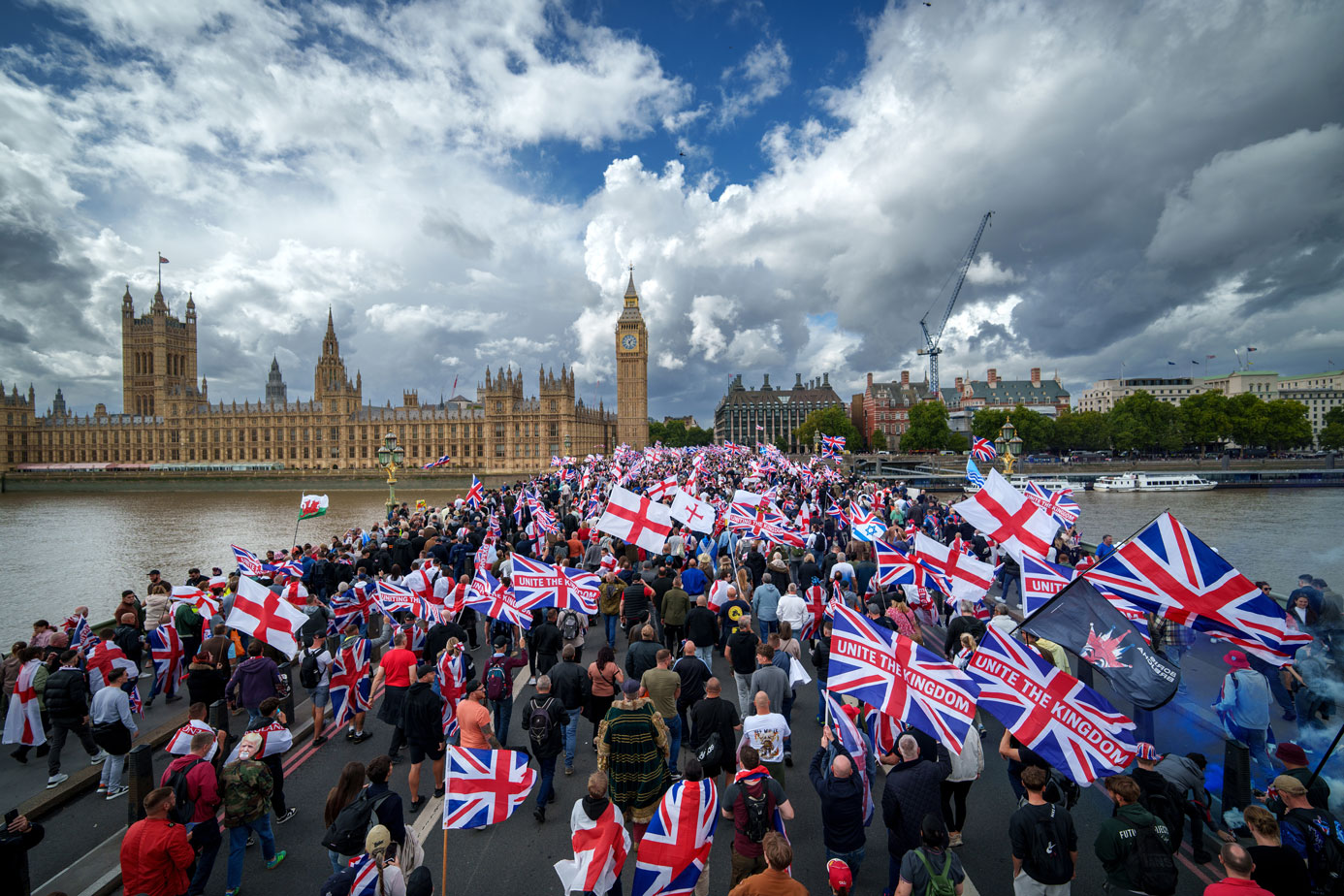Hosted by Kwangu Liwewe
Featuring Hardeep Matharu and Jos Betts
Produced by Finbar Anderson
Listen to and follow The Lede
Apple Podcasts | Spotify | Podbean
For some on the right, the prominence of British politicians from ethnic minority backgrounds, particularly in the Conservative Party, means that conversations around identity and race are no longer necessary, Hardeep Matharu, editor-in-chief of Byline Times, tells host Kwangu Liwewe on this week’s episode of Global Insights on The Lede.
“People, whether in the media or in politics, would point to them and use the fact that they were from diverse backgrounds to say, ‘We don’t need to have this conversation anymore,’” she says. “I found that a limiting and disingenuous thing to do because of course we need to keep having conversations about race and identity in Britain. We’ve made huge headway, but it’s an ongoing, evolving story.”
“We need to keep having conversations about race and identity in Britain. We’ve made huge headway, but it’s an ongoing, evolving story.”

None of the major parties in the U.K. are having nuanced discussions on identity, Matharu says. “It is always a political choice whether you look at difference and you use it to make people afraid and to say, ‘It’s us and it’s them,’ or you use it to say, ‘Difference is inevitable and how do we live with it, how can we be greater than the sum of our parts.’”
The fact that those conversations are not happening, Matharu says, “is part of the reason much more extreme versions of race and identity and what it means to be British are being weaponized.”
The Conservatives’ decision to focus on identity and immigration issues may have cost them votes in recent elections, New Lines’ Jos Betts tells Liwewe. “The Tories have lost their reputation for economic management and have continuously chosen to up the issue of immigration whilst failing to achieve what they were aiming for, and as a result it’s difficult to know why people would stick with them.”
Those failures have allowed the far-right Reform party to gain momentum, but Betts questions whether that will translate into votes in nationwide polls. “Reform is, in various ways, an unstable organization. It doesn’t have a credible policy platform. It has a lot of work to do to talk about any issues other than migration credibly with the public and [Reform leader] Nigel Farage has a terrible track record of working with the people who are attempting to support him.”
Betts also queries whether Farage’s proximity to U.S. President Donald Trump could end up backfiring. “Farage is close to Trump and to the MAGA movement in a way that a lot of people in Britain would see as beyond the pale,” he says. “It feels like there are so many ways in which he could scupper his own ship before the next election.”
Further reading: The UK’s Fragmenting Politics by Jos Betts


